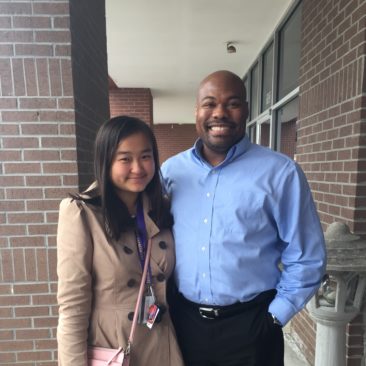Tell Us about Yourself
Victoria: Apprentice- Computer Engineering Junior graduating May 2019
Dr. Taylor: Mentor- Electrical Engineer U.S. ArmyAMRDEC Power Technology Area Lead
What AEOP program(s) did you participate in?
Science and Engineering Apprentice Program (SEAP) – Summer 2015 and College Qualified Leaders (CQL) – Summer 2016
What got you interested in this field?
Victoria: Growing up in Rocket City where almost everyone is an engineer, I had been exposed to STEM through many organizations that hosted engineering days and through the plethora of STEM clubs my schools offered. GEMS introduced me to DoD careers which pushed me to continue with SEAP and CQL.
Dr. Taylor: My first foray into electronics was based purely on my own clumsiness. Once as a child, I was shocked when I touched the cover of my grandmother’s VCR. Rather than recoiling in fear, I was completely enthused and started to take it apart. It was my first electrical autopsy!
What is the most important part of the mentor relationship?
Victoria: Dedication – Dr. Taylor provided such a rich learning experience during SEAP and CQL. He really helped me gain more technical and presenting experience. He is still one of the first resources I go to whenever I need career advice or have questions about my electrical engineering courses.
Dr. Taylor: I mostly enjoy watching the learning process take shape within a student. It brings me great joy to see a student accept the challenge of learning something that they know little or nothing about and then produce something of tangible value, whether it be an experiment, publication or product.
Advice to a student, just beginning to consider a career in science?
Victoria: Science is made up of many disciplines, so you will definitely find a field that interests you. Passion for what you are learning helps you tackle the tough challenges and supplies a purpose. After all, we are all here to make a difference in the world.
Dr. Taylor: My advice would be to remain consistent and confident. Consistency application of your learned skills will always give you the tools to solve a problem. Confidence allows you to go back to the drawing board when a solution fails. It’s science. There are always failures. It’s part of the game.
Download/Print Version:

